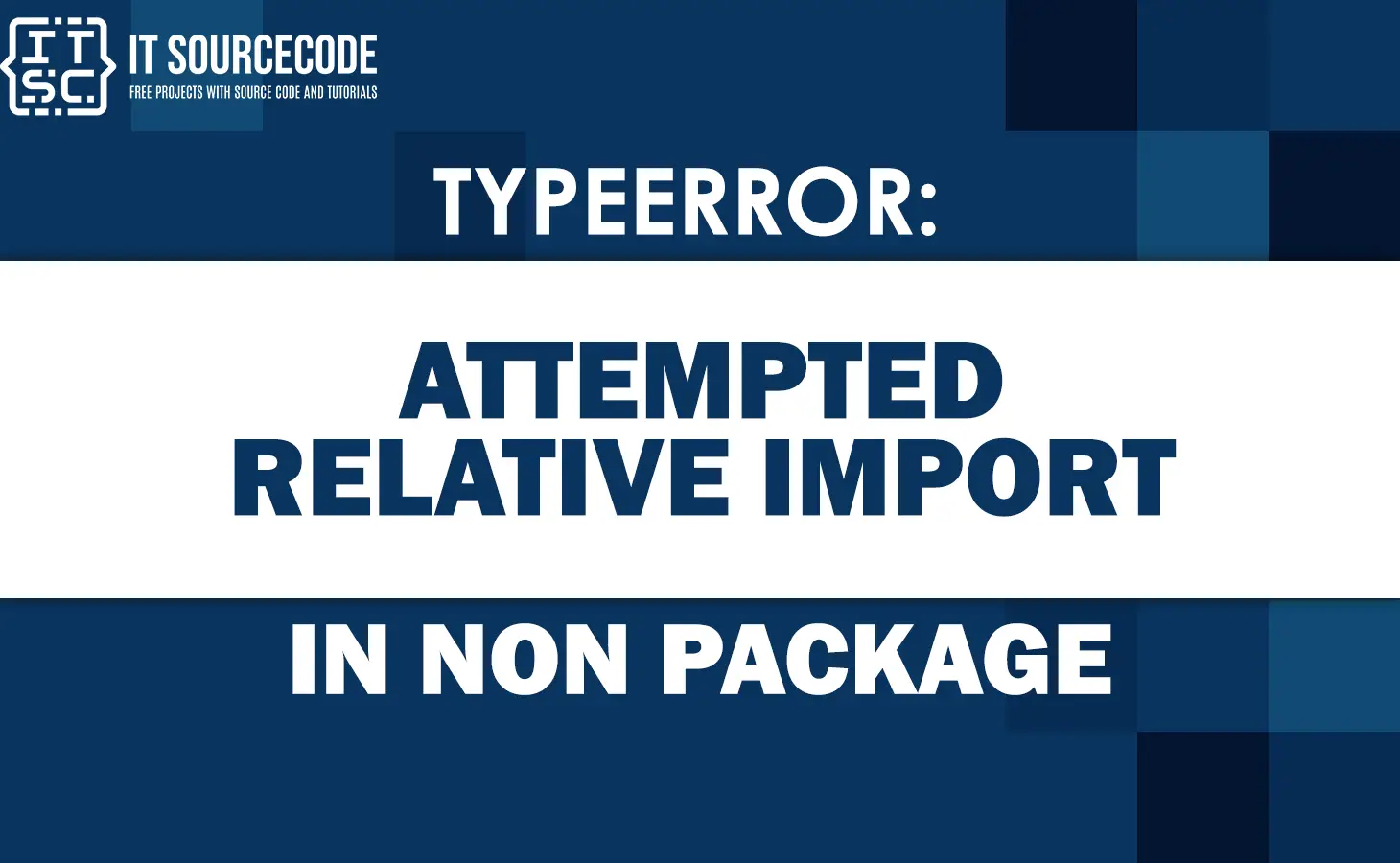This Valueerror: attempted relative import in non package error typically occurs when we attempt to perform a relative import in a Python module that is not part of a package.
In this article, we will explain this error in details, understand its causes, provide examples to illustrate the issue, and discuss effective solutions to resolve it.
Examples of ValueError: Attempted Relative Import in Non-Package
Example: Incorrect Relative Import
Consider the following example: You have a Python project with the following directory structure:
project/
├── main.py
└── subpackage/
├── __init__.py
└── module.py
Inside module.py, we attempt to perform a relative import of a function from main.py using the syntax from ..main import my_function. However, when we run module.py, we encounter the ValueError: Attempted Relative Import in Non-Package.
The error occurs because module.py is not part of a package, and relative imports are only allowed within packages.
This error serves as a security to prevent ambiguous imports and ensure proper organization of code.
Solutions to Fix the ValueError: Attempted Relative Import in Non-Package
To resolved the valueerror malformed node or string, here are the following solutions:
Solution 1: Convert Module to Package
To resolve the ValueError: Attempted Relative Import in Non-Package error, we need to convert the module into a package.
This involves adding an init.py file to the module’s directory.
- Navigate to the subpackage directory in your terminal.
- Create an empty init.py file using the command: touch init.py.
After adding the init.py file, the updated directory structure will look like this:
project/
├── main.py
└── subpackage/
├── __init__.py
└── module.py
Now, when we run module.py, the relative import will work correctly, and we won’t encounter the ValueError anymore.
Solution 2: Absolute Import
Another way to resolve the ValueError is to use absolute imports instead of relative imports.
With absolute imports, we provide the full path to the module that we want to import.
To demonstrate this solution, let’s consider the same directory structure as before:
project/
├── main.py
└── subpackage/
├── init.py
└── module.py
Inside module.py, instead of using a relative import, we can modify the import statement to an absolute import as follows:
from project.main import my_function
By defining the full path to the module, we can avoid the ValueError and ensure that the import works correctly.
Solution 3: Modify the sys.path List
Modify the sys.path list to include the path to the desired module or package.
By appending the path to sys.path, Python will search for modules or packages in the specified directory, allowing successful imports.
Solution 4: Adjusting the Python Environment
In some cases, adjusting the Python environment can resolve the error. This can involve ensuring the current working directory is correctly set or modifying environment variables that affect the import behavior.
Solution 5: Address Circular Dependencies
If circular dependencies exist, they should be resolved.
Analyze the dependencies between modules and consider refactoring the code to remove circular dependencies.
By breaking the circular dependency chain, the error can be resolved.
Solution 6: Use Explicit Relative Imports
Instead of relying on implicit relative imports, use explicit relative imports.
Explicit relative imports provide a clear reference to the desired module or package by using relative import statements starting with from . or from … These solutions helps Python resolve the imports correctly.
More Resources
The following articles can help you to understand more about VALUEERRORS:
- valueerror: too many dimensions ‘str’
- Valueerror: unknown format code ‘f’ for object of type ‘str’
- Valueerror: cannot index with multidimensional key
- Valueerror malformed node or string
Conclusion
The ValueError Attempted Relative Import in Non-Package error is encountered when we attempt a relative import in a module that is not part of a package.
In this article, we discussed the causes the error, provided examples to illustrate the issue, and discussed six effective solutions to resolve it.
By converting the module into a package or using absolute imports, you can fix this error and ensure smooth execution of your Python code.
Frequently Asked Questions (FAQs)
The ValueError: attempted relative import in non-package error shows that a relative import was attempted within a module that Python does not recognize as part of a package.
This error occurs when the current module lacks the necessary package structure.
If the code was working previously but now you encounters the error, it is possible that changes to the module structure or packaging caused the issue.
Check for any modifications that may have affected the module’s recognition as part of a package.
Yes, relative imports can be used in Python without encountering this error as long as the current module is recognized as part of a package.
Make sure that the module resides within a package and has the correct package structure.

